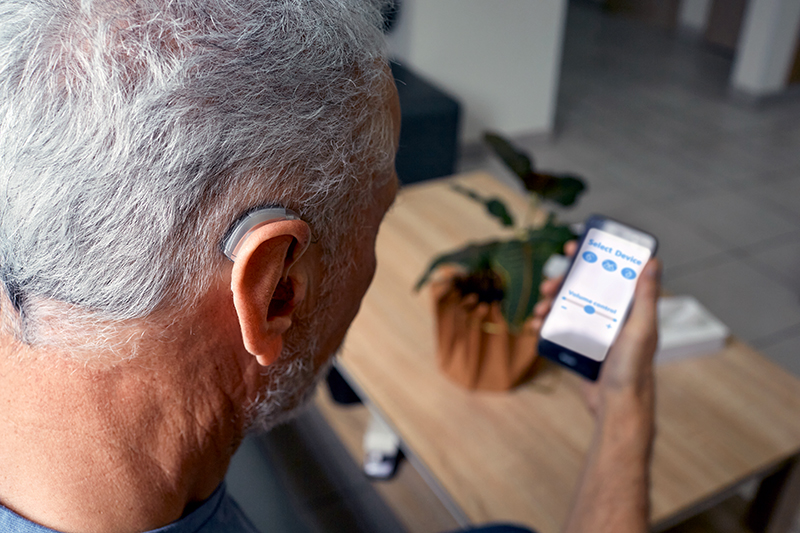 A frequently asked question among both new and seasoned hearing aid users is, Is it possible to wear headphones while using hearing aids? Additionally, there may be inquiries regarding the most suitable types of headphones for use with hearing devices.
A frequently asked question among both new and seasoned hearing aid users is, Is it possible to wear headphones while using hearing aids? Additionally, there may be inquiries regarding the most suitable types of headphones for use with hearing devices.
Can I Wear Headphones with Hearing Aids?
The truth is, individuals can wear headphones in conjunction with most hearing devices; however, this compatibility is contingent upon the specific style of the hearing aid, the type of headphones used, and personal comfort preferences.
Over-Ear Headphones for Behind-the-Ear Hearing Aids
For individuals who utilize behind-the-ear hearing aids, which are the most prevalent style, over-ear headphones are typically the most suitable choice. This design not only accommodates hearing aids effectively but also offers superior sound quality, thereby enhancing the overall listening experience. Over-ear headphones provide notable comfort and significantly reduce background sounds, making them an ideal choice for attentive listening. Older hearing aids and analog technology may have resulted in feedback when paired with this style of headphones. However, contemporary hearing devices mitigate such issues, ensuring a seamless and effective listening experience.
On-Ear Headphones for Behind-the-Ear Hearing Aids
An on-ear headphone style can be effective; however, it may not sufficiently reduce background noise, as it does not fully cover the microphones of behind-the-ear hearing aids. Open-ear or bone conduction headphones may be an alternative, depending on the kind of hearing loss. However, these types of headphones allow ambient sounds to be fully audible, which may hinder one’s ability to concentrate on audio content.
Headphones for In-The-Canal Hearing Aids
Individuals who utilize in-the-canal hearing aids will find that over-the-ear and on-ear headphones are effective options. These headphones transmit sound directly into the hearing aids, benefiting users from their prescribed amplification. As in-the-canal hearing aids lack a microphone behind the ear, users should experience minimal disruption from background noise. For those with sensorineural hearing loss, bone conduction headphones may also be a viable alternative; however, it is important to note that they will allow for the perception of surrounding ambient noise.
Bluetooth Hearing Aids
Individuals with Bluetooth-enabled hearing aids can stream music directly to their devices, eliminating the need for headphones. This functionality offers a convenient and seamless connectivity experience. However, there may be instances when background noise diminishes the clarity of the streamed audio. In such cases, muting the external microphone on the hearing aids may enhance the overall listening experience. Wearing visible headphones can serve as a useful signal in situations where it is vital to communicate to others that one may not be able to hear them. This is particularly relevant in public transportation settings, fitness environments, or situations when you want some personal space. Therefore, readily available headphones may prove beneficial, even when streaming the primary audio source through the hearing aids.
Earbuds and Hearing Aids
Earbud-style headphones can be a suitable option, depending on individual comfort levels. Some individuals may find that earbuds fit comfortably over their hearing aids, while others may experience discomfort. It is advisable to experiment with different alternatives to determine what best meets your needs.
Safe Listening
It is essential to prioritize the health of your ears. If you experience hearing loss, safeguarding the hearing you still possess is vital. We recommend adhering to the 60-60 safe listening guideline: limit listening to no more than 60 minutes at a time, maintaining the volume at no more than 60% of the maximum level. Additionally, taking regular breaks for your ears throughout the day is vital.
For those wanting to see the latest improvements in hearing aid technology, assess their current hearing levels, or acquire custom hearing protection for upcoming events, we invite you to contact us. Our team of hearing care professionals can assist you in enhancing your quality of life in the face of hearing loss.